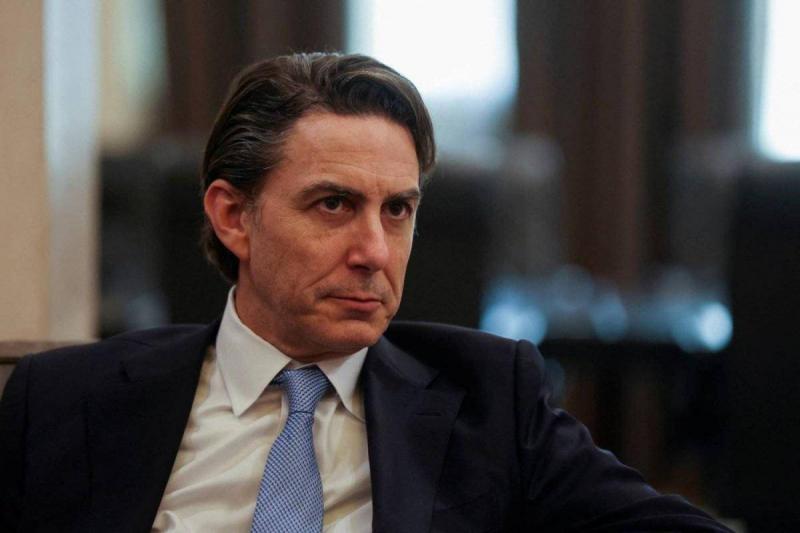The security file in the south, alongside the ongoing war in Gaza, dominates the interests of officials both domestically and internationally as they seek a real exit to spare the region from the fires of war and its repercussions. The presidential election is no longer the primary focus of concerned officials in Lebanon, nor is it receiving the same level of interest from the "Quintet" group, as the war scene in the region takes precedence, even though its members continue to claim they are committed to helping the Lebanese and bridging gaps between parliamentary blocs to complete the presidential process.
Prominent among these discussions is Amos Hochstein, the senior adviser in the White House, who remains a point of contact for politicians engaging with him or his team at the U.S. embassy, as reported by "An-Nahar." A new factor in the ongoing communications has been the possibility of reaching a ceasefire in Gaza, which could also influence the situation in the south. Before Hochstein's recent visit to Beirut, there were already ongoing communications between Washington and Doha that extend beyond just following the Gaza file. Hochstein is known to favor minimal external interference in his work, even from American entities; however, he has recently not hesitated to discuss the situation in the south and organize what may follow a ceasefire by involving Qatari officials and seeking their assistance.
The recent visit by Ali Hassan Khalil, the political aide to the Speaker of Parliament, to Doha revolved around developments in the south, which have been at the core of his mission. Hochstein is doing everything possible to prevent a deterioration of military confrontations between Israel and Hezbollah. While he has been unable to halt these confrontations, he is active in preventing a slide into a full-scale war.
During discussions between President Nabih Berri and Hochstein about the developments from Gaza to the south, both expressed a desire to involve Qatar in these communications, to which Qatar did not object. Berri commended Doha for its efforts in Gaza and its support for the Palestinians across multiple fronts. Despite the pressures faced by their officials, Al Jazeera continues to cover events in Palestinian territories, including Gaza and the West Bank.
Lebanese entities supporting the progress of these communications welcomed Qatar’s involvement and emphasized that its role should not be limited to Gaza but should also shape its future in collaboration with Egypt and under an American umbrella. This situation is unlikely to sideline Iran, given its influence over Hamas, which has proven its presence on the ground and Israel's inability to uproot or eliminate its military structure.
Meanwhile, contrary to reports from media outlets, the Qatari envoy Jasem Al Thani, also known as "Abu Fahd," did not visit Beirut last week, although there are talks of him arriving soon with a focus this time more on the security issues in the south rather than the presidential aspect after a series of visits addressing this issue.
Hochstein affirmed to those he met that he did not convey any Israeli threat to Lebanon in his talks with Berri. Although he did not definitively resolve the current situation, he raised concerns about potential threats during his session with Prime Minister Najib Mikati. It was notable in all of Hochstein's meetings and ongoing communications with Lebanese and Qatari officials that Hamas's movement was present in any discussion.
Reports compiled by the American envoy underline several key points regarding the handling of the situation in Gaza and the south moving forward. According to insights from Lebanese sources, Hochstein arrived at the following conclusions:
1. It has become increasingly certain that despite all of Israel's actions in Gaza and Rafah, it is incapable of completely eliminating Hamas's military wing.
2. The primary decision-maker in Gaza remains Hamas leader Yahya Sinwar, who possesses significant ground capabilities; no officials from the movement can override his decisions, and Hamas will not retreat from the objectives it set since October 7.
3. Discussions are ongoing between American and Qatari sides regarding the future of Gaza alongside efforts to achieve a ceasefire, focusing on its governance and administration in the aftermath of the conflict, while emphasizing that Washington will not allow Hamas the freedom to make major, pivotal decisions within the Strip.
4. The Americans are convinced of Doha's viewpoint that hosting Hamas's political bureau in the Qatari capital facilitates communication today and in the future. Transferring the movement's first leadership tier to Tehran complicates matters for Washington and other capitals, regardless of who occupies the White House after the presidential elections, as stated by "An-Nahar."




